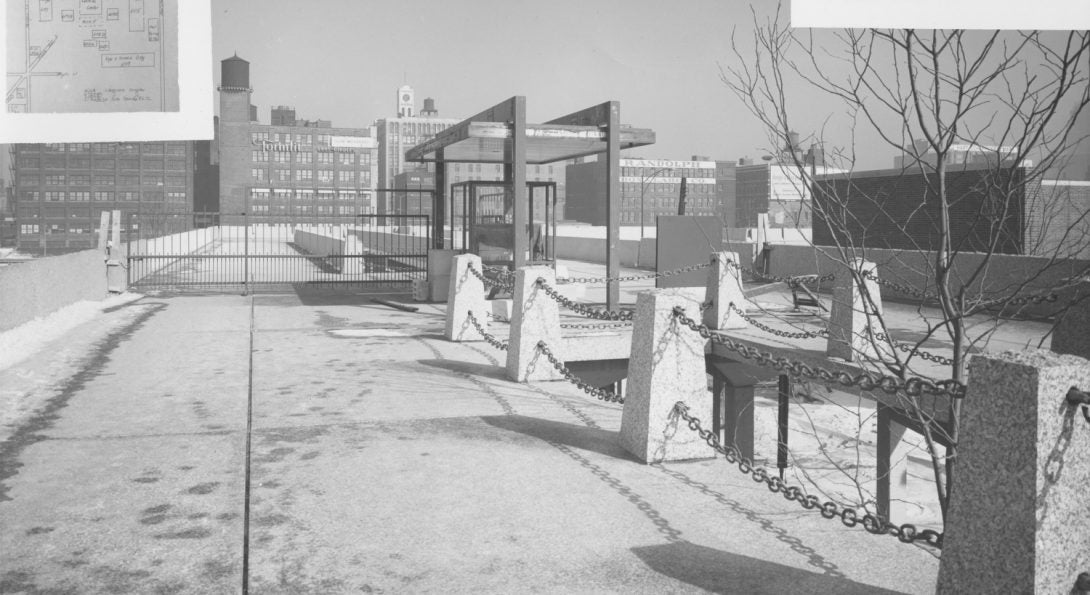History

The Urban Transportation Center (UTC) was established as a UIC campus unit in 1979. The unit has a strong research, teaching and service history and a long-range strategic plan designed to position the UTC as the premier urban university center with a focus on transportation.
The proposal to establish the center was written by Dr. Ashish Sen, working with the encouragement of Milton Pikarsky, the chairman of Regional Transportation Authority (RTA). The first director was Richard Michaels, who also directed the predecessor unit, the Urban Systems Laboratory in the College of Engineering. Dr. Michaels came to UIC from Northwestern University where he had developed an international reputation in human-factors transportation research. He was succeeded by Robert Paaswell in 1982. When Dr. Paaswell was called upon to become the Executive Director of the Chicago Transit Authority (CTA), Dr. Michaels returned to the Center as Director. Dr. Robert Paaswell is currently Distinguished Professor of Civil Engineering at City College of New York, Director of the University Transportation Research Center.
The First Decade
During the early 1980s, much of UTC’s research was supported by the U.S. DOT’s Office of University Research and involved faculty from numerous colleges. The faculty, mainly in the College of Urban Sciences, wrote a series of final reports on paratransit planning, carpooling and vanpooling that became national standards in the field. The Center also received considerable amount of funding from Joyce Foundation and the Woods Charitable Fund to study economic development and access to employment. This work led to the SEED Model (Labor Shed Mapper). Studies also were conducted on privatization of handicapped transit for CTA, a valuation study of Milwaukee Road, access to employment by urban residents, training and modeling behavior of freight locomotive engineers, and development of a cooperative program with China.
In 1988, the UTC was able to recruit David Boyce, a leading figure in Regional Science and an internationally renowned transportation modeler, to become its director. Under Dr. Boyce’s directorship, the unit became an international leader in Intelligent Transportation Systems (ITS) research with a feasibility study of in-vehicle driver navigation system (the ADVANCE study). UTC moved to CUPPA and also become the central office for Illinois Universities Transportation Research Consortium (IUTRC). No longer in existence, IUTRC was a four-university consortium which was developed to coordinate faculty research interests among UIC, Northwestern University, the Illinois Institute of Technology and the University of Illinois at Urbana-Champaign. During this time, the Center focused on spatial interaction modeling, real-time travel forecasting and network assignment problems.
Seminal Urban Sprawl Research
Dr. Sen became the director of UTC in 1996. During Dr. Sen’s tenure, UTC conducted seminal work on urban sprawl that generated considerable international attention. The Center also established an advisory Board that includes the CEO’s of effectively all of the major transportation and planning agencies in the region. The UTC also established a national presence in studying the transportation needs of individuals transitioning from welfare to work.
When Dr. Sen was asked to serve as the Director of the Bureau of Transportation Statistics (serving directly under the U.S. Secretary of Transportation) in 1998, Dr. Siim Sööt assumed the directorship. Working with Joseph Di John, who had previously been executive director of PACE, the Center obtained the highly successful Metropolitan Transportation System Initiative (METSI) grant. During this period the Center also built on its welfare-to-work research and obtained a major Job Access and Reverse Commute (JARC) grant. Research work related to this grant continues today. Drs. Sen and Sööt continue to be involved in UTC research today.
Dr. Soot was succeeded by Dr. Sue McNeil in 2000. Dr. McNeil is a national leader in the area of transportation asset management. Under her directorship, the Center grew substantially in terms of grants as well as graduate research assistants. When Dr. McNeil left, Dr. Vonu Thakuriah assumed the position of Interim Director of the Center in Fall, 2005. Dr. Thakuriah’s primary areas of research are Intelligent Transportation Systems and planning for mobility and accessibility of disadvantaged individuals in our society.
UTC from 2010 to the Present
In the fall of 2010, Steve Schlickman, a transportation professional with more than 30 years of experience, was named executive director. An adjunct faculty member in the College of Urban Planning and Public Affairs, Mr. Schlickman held executive-level positions in the transportation industry and government. He served as Executive Director of the Regional Transportation Authority and led the Downtown Circulator Study in Chicago. And, he worked on funding for all modes of transportation as Mayor Richard M. Daley’s Director of the Chicago office in Washington, D.C.
Dr. P.S. Sriraj, who joined the UTC in 2000, was named director in September of 2016. Dr. Sriraj continues to serve the Center as Director of Research and Director of METSI. His areas of expertise include public transportation systems, environmental justice and equity issues, GIS in transportation, socio-economic factors and travel behavior and program evaluation.
Throughout its history, the Center has funded a number of graduate research assistants. Many Ph.D. students now have faculty positions in universities across the country and internationally. Master’s students have technical or managerial positions in some of the best-known transportation agencies and international consulting firms. The Center also has a history of a strong relationship with federal, state and local transportation agencies.